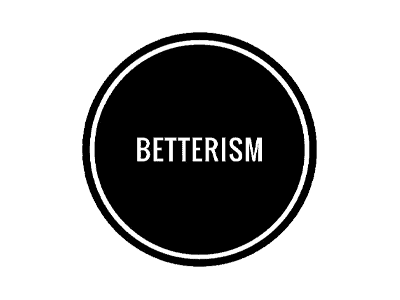When life throws unexpected challenges, like caregiving for a loved one with dementia, it teaches us the power of letting go and finding resilience in acceptance. Dr. Jill Rosenthal shares her incredible journey of turning heartbreak into strength, showing that thriving isn’t about changing circumstances but about shifting our mindset. She reminds us to release the guilt, adapt with love, and choose the battles that truly matter. From managing expectations to embracing the unpredictable, the key lies in surrendering control and focusing on what we can influence. Every challenge holds a lesson, and with the right mindset, even the toughest moments can lead to growth and connection.
Listener Free Gift: Link: drjillgift.com/caregiving
About Our Guest:
Jill Rosenthal is an award-winning Harvard & Stanford educated physician and best-selling author who retired after a 35+ year career and became certified as a mindset coach. Her extensive experience and training, coupled with her own transformation from a stressed, overworked, unhealthy physician, wife, and mother into a healthy, thriving coach make her uniquely equipped to help others release unconscious thoughts, emotions, and behaviors that hold them back, so they can create their dream life.
Website: https://www.drjillrosenthal.com/
Email: [email protected]
About Me:
I have cared for many family members across the life span, experiencing the joys and challenges of child-rearing, the poignance of caring for parents, friends, and elder partners. I realized that I could not handle the stress of family caregiving 24/7/365. It was time for a new approach to caring. My health and happiness were slipping away. This is how Think to Thrive for Caregivers evolved. Let your mind meet your heart so you don’t lose track of your life.
Connect with Me:
https://www.deborahgreenhut.com/
https://www.linkedin.com/in/deborahgreenhut01/
Thanks for listening!
Thanks so much for listening to our podcast! If you enjoyed this episode and think that others could benefit from listening, please share it using the social media buttons on this page.
Do you have some feedback or questions about this episode? Leave a comment in the section below!
Subscribe to the podcast
If you would like to get automatic updates of new podcast episodes, you can subscribe to the podcast on Apple Podcasts or Stitcher. You can also subscribe in your favorite podcast app.
Leave us an Apple Podcasts review
Ratings and reviews from our listeners are extremely valuable to us and greatly appreciated. They help our podcast rank higher on Apple Podcasts, which exposes our show to more awesome listeners like you. If you have a minute, please leave an honest review on Apple Podcasts.
Transcript
Welcome everyone to the share giving secret. I'm very happy today to have with me as my guest, Jill Rosenthal, Dr Jill Rosenthal, who is an award winning Harvard and Stanford educated physician and best selling author, who retired after a 35 year career and became certified as a mindset coach, her extensive experience and training, coupled with her own transformation from a stressed, overworked, unhealthy physician wife and mother into a healthy, thriving coach, make her uniquely equipped to help others release unconscious thoughts, emotions and behaviors that hold them back so they can create their dream life. I welcome you. Dr Jill Rosenthal, you have had caregiving at just about every end of this thing and that it is. So I'm sure you have a lot that you'd like to share with us today. Where would you like to be? Yeah. But
Deborah Greenhut:know, when we met, we met in:Deborah Greenhut:Wow, there's a breathtaking story you know, of what happens to our expectations and how dementia just short circuits everything.
Deborah Greenhut:Dr Jill Rosenthal: Yeah, expectations. I have worked with a productivity coach who says expectations are resentment waiting to happen. Everything we do is about managing expectations and so as a caregiver. Ever you know, if you expect the person you're taking care of to be able to do something that they can't, you're setting yourself up for trouble. You know, we don't expect four year olds to do calculus, right? We don't get mad at four year olds if they can't do calculus. But it's very easy to get frustrated when your spouse asks you, you know 45 times in five minutes, you know what's for dinner. And you know we all know. You know, we all know the dogma. You know, don't say, Don't you remember, or I already told you, or, you know, any one of 100 things that like, don't do that, but, but getting yourself to not do that is hard,
Deborah Greenhut:much easier said than done. Yes, it's
Deborah Greenhut:this happened in November of:Deborah Greenhut:That's, that's a very powerful perception, I think, when I talk with people and try to help them sort out their day to day in a caregiving situation. The thing that comes up so often is the guilt of having to make choices that you never in a million years would have made, or you made promises that you would not do that, such as putting someone into a facility and reconciling that grief with the reality that's very clear in front of you, that things are not going to be the same, and the staircase is always going away, now going downhill, and
Deborah Greenhut:rief and the in the summer of:Deborah Greenhut:can I ask you, since you have been a physician and I, I know my parents, my dad was a doctor and my mother was a nurse, and were always it was always assumed that because they were those careers, they had those careers, that they must be able to adapt to healthcare situations. And I can tell you, on the side of things, that if one of us, my brother or I got sick, my parents went to pieces. They still did the things they were supposed to do, but the whole time they were nervous and worried and upset. And I, I did not go into that any of those fields, and I think it may have been because I just saw the pain of being torn because you couldn't figure it out. So I'm going to ask you, does it help to be a physician in this case, in any way or maybe maybe not, sometimes
Deborah Greenhut:Dr Jill Rosenthal: yes and sometimes no. Certainly, when you're a physician and a family member is sick, it can be scary knowing all the possibilities, right, like you know, especially like, when your kid is sick, right? And you think about, like, what we call the differential diagnosis, like the list of things that could be going on that's not fun sometimes, on the other hand, sometimes it's very you know, you're like, Okay, this is all that's happening as a physician caregiver. For my husband. It it did help me to be able to advocate for him and push a bit in terms of, you know, care and stuff like that. But, you know, it's not like it's you shouldn't have to do that, right? You shouldn't have to fight for your for your care and so. But I don't think in terms of the dementia caregiving, it was as big a deal now when my parents had medical illnesses and were in the hospital being a physician, and even true with my husband too. Like, you know, when you can have the conversation in a third of the time, if you can use the lingo, right, if you understand each other, you can, like you can communicate in a different way and understand things in a different way. And in that sense, it's an advantage, but I don't think I'm not somebody who tends I've never really been somebody who tends to panic or fall apart. So I guess that a lot of that just depends on on your personality.
Deborah Greenhut:Well, there's a lot of training probably that goes into it in many cases too, although some doctors probably will panic and fall apart at times, especially with with their own children. But I mean, I saw my parents operate in very professional, almost ruthless ways when they were being a doctor and a nurse, and then they would come home and be someone else. I never knew how they made that transition, but I would guess, if it's your own spouse, your own partner, your own love, that it's very difficult to keep your eye on both of those things at the
Deborah Greenhut:Dr Jill Rosenthal: same that's true. I mean, certainly when I was at work, you know, I had the patience of a saint, right? Because you have to. And I mean, this is true anyway. And anybody you're at work, you have a certain like, you behave one way when you go home and it's your family and you're like, you care about them, it's like a different story. But even, like, if I was dealing with dementia patient and I was a dermatologist, but I had, you know, a lot of my patients were older, but even so, you know, I could be taking care of somebody who was, you know, severely affected by dementia, and maybe they were even like, kicking, you know, kicking me, or hitting me or something, and you wish it wasn't happening, but it's still, it's not your family member. It's brief. It might be a 20 minute visit that's taking 40 minutes or an hour, but like at the end of it, you know you get to go home, and then when you go home and you're dealing with that in your partner who you care about in a very different I mean, I love my patients. I cared about my patients, but, you know, it's not my family, right? And so when you go home and your family member is doing all of this, it's a lot harder to be as patient. And that's, that's the thing that changed for me that day standing at the sink where, like all of a sudden, there's no frustration, there's no resentment, there's no anger, there's no it's just now I have the patience of a saint at home too, and the being able to accept where you are and surrender to it doesn't mean surrender is not giving up. It's just accepting where you are, right is the secret to thriving no matter what life throws at you. You know, it's, it's the thing that gets you through this. You know, a lot of people would hear I told you, you know, my story, right? Like a lot of people would run screaming from the room if they heard that story. And yet, I'm thriving. You know, I've reinvented who I am and what my life is. And in order to do that, you know you you can't be holding your hand on the hot stove.
Deborah Greenhut:Now that's a great, great. Gotta take your
Deborah Greenhut:Dr Jill Rosenthal: hand off the hot stove in order to be able to take any kind of effective action. And so if we insist on staying in the narrative, you know, if we insist on staying in the problem, then we cannot get to the solution.
Deborah Greenhut:Right? How? You just. Describe the problem is going to affect the solution that you're picking, and if you can't see it clearly, you're going to make some mistakes in in formulating that solution, for sure. So one of the things that I advocate is rational caregiving, and I don't mean being a cold person at all, but I do mean you've got to set love aside and accept what is really there. So I'm so glad that you were able to tell us that story today, because it really helps to see that that's that's the thing the moment that you can see clearly that things are not going to be different because you want them to be different. There's no way to wish this away or change it. That is the moment when you can start making those good decisions and see the problem. Yeah, and
Deborah Greenhut:Dr Jill Rosenthal: also realizing that, especially with dementia, I think you know the because of the decline, you're kind of dealing with a different situation, potentially every day. And so like, what you you know, there was a time when I, you know, I really wanted my husband to eat as healthily as he could. And you know, especially like when I had him home for 13 months during COVID. And you know, he really was too far. His brain was too far gone at that point for it to make much of a difference. And then eventually, you know, he, I'll skip the long parts of the story, but, but you know, he's been in memory care for it'll be three years in February, and, you know, he at this point, like, whatever he wants to eat, great. Like he's eating something, you know, and he likes sweet things, so, like, he eats drinks a lot of ensure, and, you know, and if he wants dessert first. I mean, you know, you're 93, and a half years old, you're living you don't remember two seconds ago, and can't think two seconds in the future, like, eat what you want. Man, right? And so, like, you have to be, you have to be adaptable.
Deborah Greenhut:Yeah, to realize like
Deborah Greenhut:Dr Jill Rosenthal: this made sense before, but it doesn't make any sense anymore. And then, you know, you have to and so, so being able to you have to be able to set aside your own expectations and think about what this person needs. You know what they would have wanted. And hopefully, if it's a spouse, you've had those discussions, or a parent, anybody you've had those discussions, but being able to set aside what you wish it could be, and just kind of let it be what it is. Is important, and it's, it's hard. It takes, you know, it takes practice, and it takes doing a lot of inner work. And, you know, you talked before we mentioned mindset. You know, there's mindset, like we think of cognitive and there's rational, right? You know, reframing and telling yourself stuff, and sometimes that's enough, but really, you have to to really shift your mindset. You have to, you have to shift the emotions. You have to, you have to do the inner stuff. And a lot of people, that's hard to do on your own. And most people need some help
Deborah Greenhut:with that. Yeah. So you recommend consulting a therapist, or someone therapist,
Deborah Greenhut:Dr Jill Rosenthal: or a coach or, you know, and there's all sorts of things. I mean, support groups are great, you know, I went to caregiver support groups until everything fell apart with COVID. And it was great, because, like, you had sympathy, you had empathy. You had people who could who got it. You had people you could tell the story. You know, people would tell the stories. And everybody, like you could laugh, because everybody you know and the stuff everybody else you know, if you told somebody else, they'd be like, What the hell is the matter with you? But like, when you're in it, like you understand that you know, you could see the humor and you're in this group. But even so, like, that's really useful, I think, for caregivers. But sometimes that environment is keeping you in the problem, right? It's keeping you like you're, you're kind of in this echo chamber of of hearing that and so sometimes having, you know, having some additional professional support that's geared. Like just on you without the other person's filter can be helpful as well.
Deborah Greenhut:Yeah, I think to be able to redirect and and not get locked into a rut of simply ruminating about it and thinking it over and over. The same thing is important, because while the person you're caring for may be stuck in one reality that's constantly changing, but that's a different reality, you need to be able to move on and look forward and see what's coming, so that you can plan for it and also protect yourself from Yeah,
Deborah Greenhut:Dr Jill Rosenthal: that's hard to plan like because you don't always know what's coming like, you think one thing's going to happen and something else happens, but you've got, you have to learn how to do that.
Deborah Greenhut:Yeah, other people can be helpful. I will. I'll agree with you. And and at the same time, time is sometimes a factor for people. How do I get free to even sit at a zoom table and and converse with people in a support group like that. There isn't always a minute free to do it, if you're on your own,
Deborah Greenhut:Dr Jill Rosenthal: yeah, when at the time that I was going to support groups, at first there was in the same building, there was a support group for the caregivers, and in another room, there was a support group for the early stage memory loss patients. And so that worked, and then eventually he moved into assisted living and I can't quite remember. I maybe I picked him up and took him, I don't remember. And then COVID happened, and it all disappeared. And at that point he was beyond, you know, and once he was in, once he was in assisted living, you know, I could go, come and go as I needed to, although, you know the phone, I get a lot of phone calls from not from him, really so much anymore, although every now and then there'll be a rash of calls during the night, but from the care staff And, you know, and all of that. But it's just, you know, it's part of it, and I just have to be able to be open to what's happening. And I don't, I don't know what's going to happen. I don't know whether he has six weeks or six months or six years. You know, he's 93 and a half. His sister lived to be 98 and a half. Also end stage dementia. I, you know, I don't know. And what I do know is that like, although I'm emotional, he's at the point now where I'm intellectually accepting of it and intellectually ready. I don't think you can ever be completely emotionally ready. It's going to be, you know, it's going to be rotten when it happens and and I have to be okay, I can't control that. There are so many things I can't control, and I have to just be like, can't control that. Yeah, let it go. Not worth worrying about it. Let it go. And having had, you know, the double whammy of dementia caregiving and having had cancer, you know, when you have a life threatening illness, you sort of have this at the same time, like, I'm not going to let little stuff bother me, but I also don't have to make room in my life, like I can let it go, but it doesn't have to be just that it's there and it doesn't bother me. It's like, bye, bye. And so that's a lesson that makes more sense to people who have had a life threatening illness, and so I can take that and bring that into caregiving, right? I can't, you know, I can't control what he eats, you know, I can't at this point, you know, he's kind of getting a bushy beard because, you know, he doesn't want to let them shave him. And it's like you got to pick your battles, right? Changing diapers important beard, not so much. And so I think as caregivers, we have to sort of just learn that lesson, and it's a hard lesson.
Deborah Greenhut:I wish that we had more time to talk about it today, but we've come to the end of our podcast moment. But I think that is that is a great way to think about it, as we leave today, that some things you cannot control, and it's best that you move on to the thing. Things that you can and I know that's the Serenity Prayer as well. And probably that's a that's a big piece of what caregivers need to master in order to do the hard job that they have to do. Yeah, friend
Deborah Greenhut:Dr Jill Rosenthal: of mine wrote a book called serenity and caregiving.
Deborah Greenhut:No, well, we're going to put some of your links in the show notes. Is there a place that people could reach out to
Deborah Greenhut:Dr Jill Rosenthal: you? Yes, they can find me. My website is Doctor Jill rosenthal.com and I have a gift for your audience if they would like to get it, and it's called letting go of anger in dementia caregiving, the path to acceptance and connection, and they can find that at Doctor Jill gift.com/caregiving
Deborah Greenhut:that's wonderful. I know that so many people are going to benefit from this. I so appreciate talking with you today. I've learned a lot about mindset and about thinking of things a little bit differently. And I hope that we're able to continue this conversation in some way, because all of us are going to have to be caregivers in one way or another. And I think the best way is if we share these ideas so that we can
Deborah Greenhut:Dr Jill Rosenthal: I want to hear more about your we talked so much about my story today. I you know, I want to know how you got to be where you are sometimes, so it would be great to chat again sometime. Thanks
Deborah Greenhut:so much. We will certainly do that. And to our listeners, please remember, caregiving is best done as a group activity, not as a solo act. So reach out for whatever resources you can find and keep that serenity, keep that acceptance, because you are somebody, you do contribute, and it's such important work, and yet you also must take that time for self care. Thanks, everyone.
















